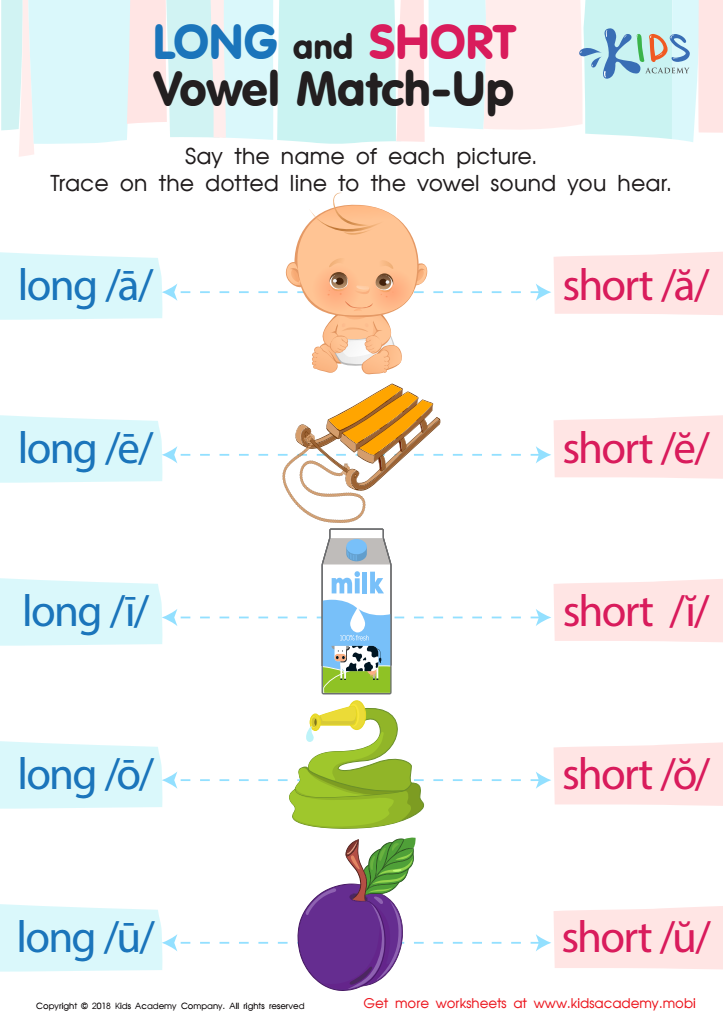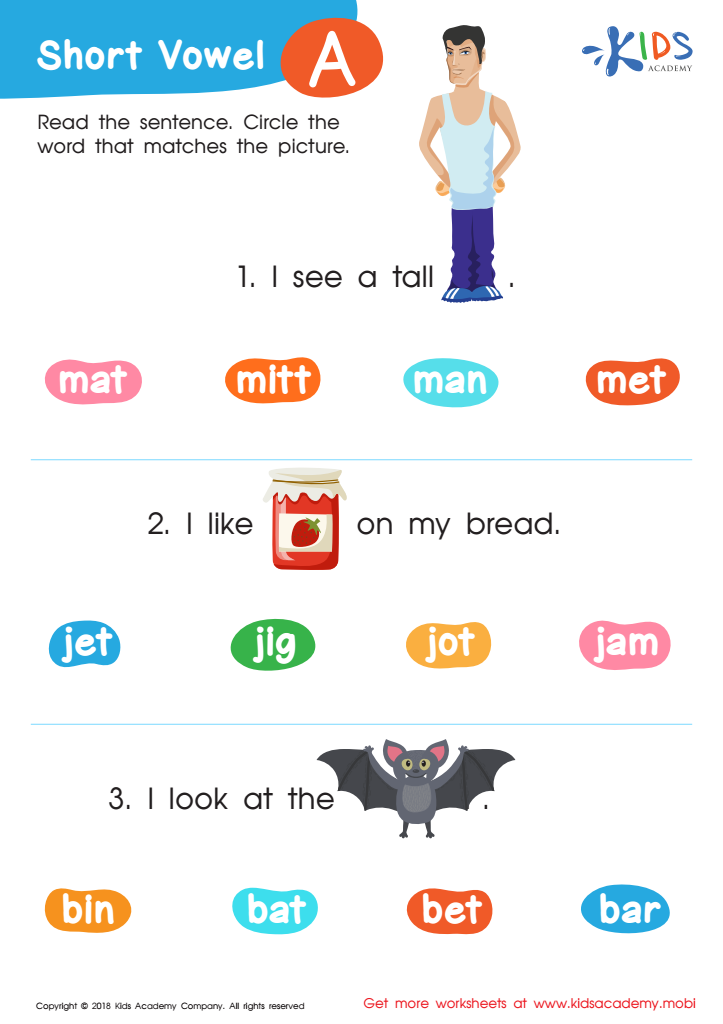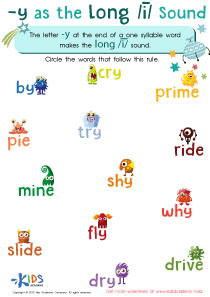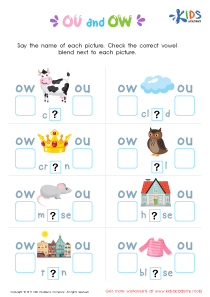Vowel Recognition Normal Short Vowels Worksheets
5 filtered results
-
From - To
Unlock your child's reading potential with our Vowel Recognition Normal Short Vowels Worksheets! Designed for early learners, these engaging worksheets focus on identifying and practicing short vowel sounds to enhance phonemic awareness. Each worksheet features fun activities, including illustrations and exercises tailored to reinforce the recognition of short vowels in various contexts. Perfect for at-home practice or classroom use, these resources foster a solid foundation for future reading success. Whether your child is just starting their literacy journey or needs a little extra help, our printable worksheets offer the support they need to master short vowels confidently and effectively!


Long and Short Vowel Match up Reading Worksheet


Short Vowel /a/ Worksheet


Short Vowels /e/, /i/, and /u/ Worksheet


Short Vowel Eggs Worksheet


Long and Short Vowel Sentences: Assessment Worksheet
Vowel recognition, particularly of normal short vowels, is fundamental to early literacy development in children. Parents and teachers should prioritize this skill as it lays the foundation for successful reading and writing. Short vowels—/a/, /e/, /i/, /o/, and /u/—are ubiquitous in the English language and appear in numerous common words. Mastering these sounds enables children to decode words more efficiently, enhancing their phonemic awareness.
Understanding short vowels helps improve spelling and word recognition, which are crucial for reading fluency. When children can identify these vowels and their respective sounds, they can tackle more complex words as they progress. Additionally, early exposure to short vowels promotes a love for learning and boosts confidence as children see their decoding skills improve.
Moreover, recognizing short vowels can also aid in differentiating and articulating sounds, contributing to clearer speaking and communication skills. For parents and teachers, supporting vowel recognition through engaging activities, games, and reading aloud together can foster a nurturing learning environment. Ultimately, prioritizing this skill helps children succeed academically and cultivates a lasting appreciation for language and literacy.
 Assign to My Students
Assign to My Students

















